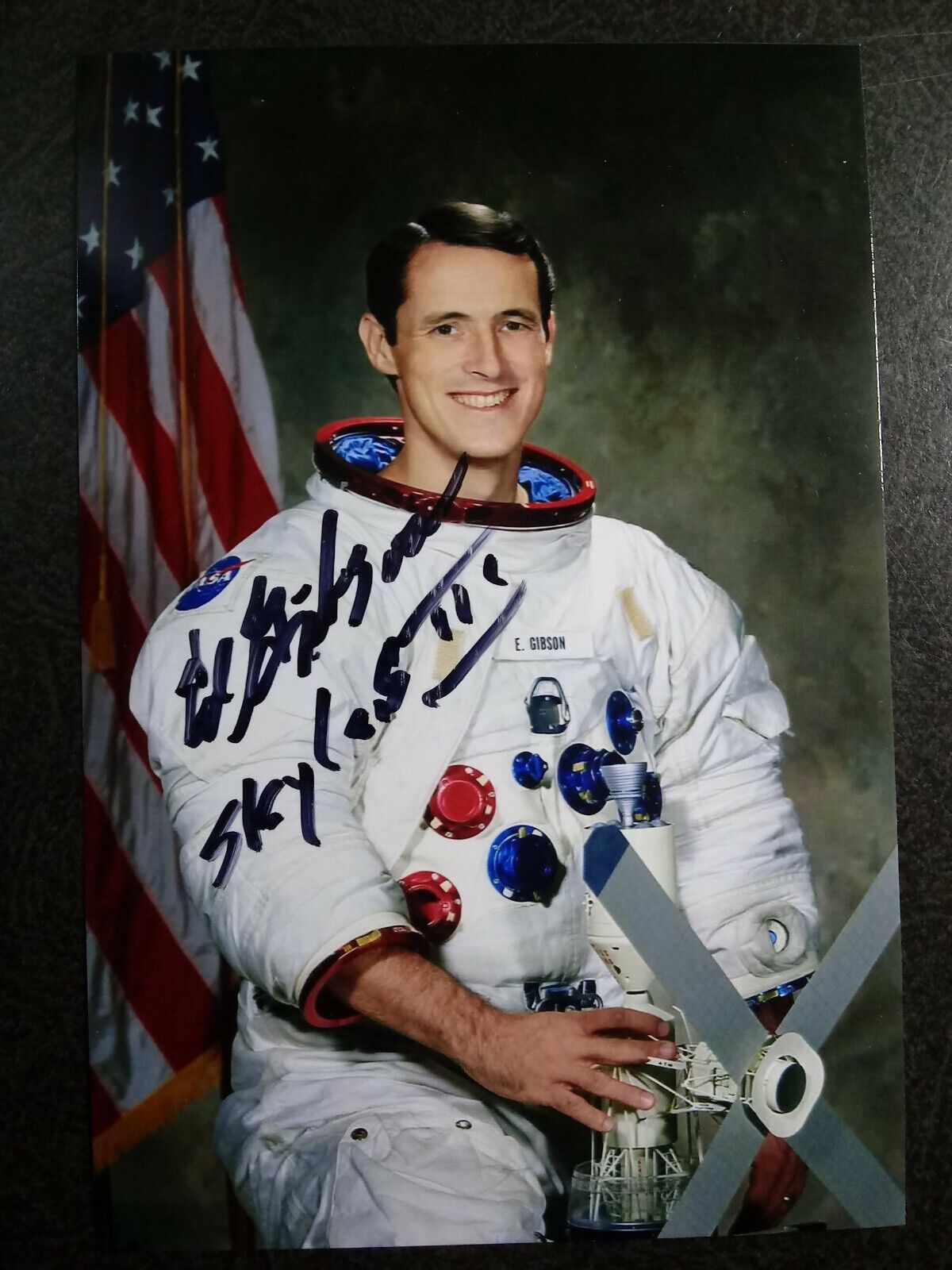-40%
EDWARD GIBSON Authentic Hand Signed Autograph 4X5 Photo - NASA ASTRONAUT
$ 0
- Description
- Size Guide
Description
NASA ASTRONAUT - EDWARD GIBSON Hand Signed 4X5 Photo . this Photo is Hand Signed by EDWARD GIBSON. %100 Authentic Autograph ! The Autograph looks AMAZING ! EDWARD GIBSON wrote EDWARD GIBSON SKYLAB III on this photo. NICE INSCRIPTION . The photo Is in GREAT Condition & is a High Quality photo . very light writing on this photo. Will be shipped SUPER FAST to you & will be Well packaged . I will ship to you . The SAME DAY you pay :) YES... I even ship on Saturday . Payment MUST be made in 4 days or less after this listing ends ! Combined s&h is Extra each additional listing . In the 4 day Period . Check out my other Low priced autographs & my Fantastic Feedback :) Ad my store to your follow list . I do list NEW Low priced Autographs EVERY DAY ! Upon Request . I do offer my Lifetime Guarantee COA . Just message me at Checkout . Thank you :) AmandaEdward G. Gibson BornNovember 8, 1936 (age 85) Buffalo, New York, U.S. StatusRetired NationalityAmerican Other namesEdward George Gibson Alma materUniversity of Rochester, B.S. 1959 California Institute of Technology, M.S. 1960, Ph.D. 1964 Occupation Engineerphysicist Awards Space career NASA Astronaut Time in space84d 01h 15m Selection1965 NASA Group 4 Total EVAs3 Total EVA time15 hours 22 minutes MissionsSkylab 4 Mission insignia RetirementOctober 31, 1982 Scientific career ThesisIonization phenomena in a gas-particle plasma (1964) Edward George Gibson (born November 8, 1936) is a former NASA astronaut, pilot, engineer, and physicist. Before becoming an astronaut, Gibson graduated from the University of Rochester and the California Institute of Technology. He became a research assistant in jet propulsion while completing his studies, and eventually became a research scientist for Philco Corporation until joining NASA in 1965. Gibson is the last surviving crew member of Skylab 4. Gibson was selected as part of NASA Astronaut Group 4, the first group of scientist-astronauts. He served on the support crew of Apollo 12, the second Moon landing mission, before working on the development of the Skylab space station. In 1973–74, Gibson made his only flight into space as science pilot aboard Skylab 4, the third and final crewed flight to Skylab. He, along with Commander Gerald Carr and Pilot William Pogue, spent just over 84 days in space. Gibson resigned from NASA in December 1974, but returned in 1977 to preside over the selection of scientist-astronaut candidates. Gibson retired from NASA for the last time in October, 1982. NASA career Gibson's spacewalk during his time on Skylab 4 Gibson was selected as a scientist-astronaut by NASA in June 1965. He completed a 53-week course in flight training at Williams Air Force Base, Arizona, and earned his Air Force wings. Since then, he has flown helicopters and the T-38. He served as a member of the astronaut support crew and as a CAPCOM for the Apollo 12 lunar landing, becoming the first from the scientist-astronaut group to get a crew assignment of any kind. He also participated in the design and testing of many elements of the Skylab space station. As part of his preparation for the Skylab program, Gibson studied solar physics, ultimately writing an introductory monograph/textbook on solar astrophysics The Quiet Sun, apart from 1973 English edition published in the United States there was 1977 Russian edition of this book, published in the Soviet Union by Mir Publishers. Skylab 4 Gibson at the Apollo Telescope Mount console in the Skylab Multiple Docking Adapter Gibson was the science pilot of Skylab 4.The third and final crewed visit to the Skylab space station, it launched November 16, 1973, and concluded February 8, 1974.This was the longest crewed flight (84 days 1 hour 15 minutes) in the history of crewed space exploration at that time. Gibson was accompanied on the record-setting 34.5-million-mile flight by Commander Gerald P. Carr and Pilot William R. Pogue.They successfully completed 56 experiments, 26 science demonstrations, 15 subsystem detailed objectives, and 13 student investigations during their 1,214 revolutions of the Earth.They also acquired a wide variety of Earth resources observations data using Skylab's Earth resources experiment package camera and sensor array. Dr. Gibson was the crewman primarily responsible for the 338 hours of Apollo Telescope Mount operation, which made extensive observations of solar processes. Until the Soviet Union's Soyuz 26 broke the record in March 1978, Gibson and his Skylab 4 teammates held the world record for individual time in space: 2,017 hours 15 minutes 32 seconds. Gibson logged 15 hours and 22 minutes in three EVAs outside the Skylab Orbital Workshop.Gibson is the last surviving Skylab 4 crew member (Carr died in 2020, and Pogue died in 2014). Gibson resigned from NASA in December 1974 to do research on Skylab solar physics data as a senior staff scientist with the Aerospace Corporation of Los Angeles, California. Beginning in March 1976, he served for one year as a consultant to ERNO Raumfahrttechnik GmbH, in West Germany, on Spacelab design under the sponsorship of a U.S. Senior Scientist Award form the Alexander von Humboldt Foundation. In March 1977, Gibson returned to the Astronaut Office astronaut candidate selection and training as Chief of the Scientist-Astronaut Candidates. During his second tenure at NASA, Gibson had hoped to fly on another space station mission due to his experience on Skylab, but at the same time was not keen on flying a Space Shuttle mission. He served as CAPCOM for STS-1.Gibson ultimately decided to retire from NASA again on October 31, 1982 and began working for TRW.









